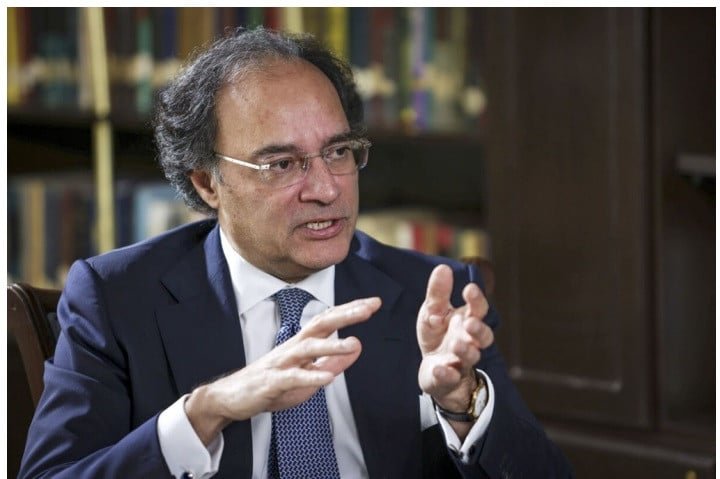Federal Minister for Finance and Revenue, Senator Muhammad Aurangzeb, announced on Thursday that Pakistan has achieved macroeconomic stability, with all major economic indicators showing positive trends.
Senator Aurangzeb made these remarks while addressing the Inaugural Ceremony of the Buna-Raast Connectivity Project Implementation Phase. He emphasized that the country is currently experiencing a phase of economic stability, which lays the foundation for sustainable economic growth.
He highlighted that key economic indicators, including foreign reserves, workers’ remittances, policy rates, exchange rate, revenue collection, and twin deficits such as the Current Account, are all showing positive momentum. This, he added, reflects growing confidence among foreign investors in Pakistan’s economy.
“We have a two-month import cover, and the exchange rate is stable,” Aurangzeb stated. He also noted that in the past two months, foreign companies and potential investors have shown increased interest in investing in various sectors of the economy.
The minister further explained that the government is focusing on the digital economy, with an emphasis on documenting the local economy through digitization. He credited the government’s prudent economic policies, reforms, and administrative measures for the receipt of $3 billion in workers’ remittances in July 2024 alone.
Aurangzeb highlighted the government’s prioritization of tax and energy reforms, along with broader structural reforms aimed at achieving sustainable economic growth. He described the “Buna-Raast Connectivity Project” as an exemplary initiative between Pakistan and the Kingdom of Saudi Arabia (KSA), which will facilitate legal transactions and advance the digital economy in the country.
He also noted that Pakistan endorses KSA’s Vision 2030 and has drawn lessons from this economic vision to support sustainable growth in Pakistan. Buna, operated by the Arab Regional Payments Clearing and Settlement Organization (ARPCSO) under the Arab Monetary Fund (AMF), is a cross-border payment system that enables financial institutions and central banks in the Arab region and beyond to send and receive payments in local and key international currencies securely and cost-effectively. Buna offers modern payment solutions that adhere to international standards, principles, and compliance requirements.
The Raast Instant Payment System, developed by the State Bank of Pakistan (SBP), is a transformational initiative built on the state-of-the-art ISO 20022 standard. Raast is designed to be a simple, free, fast, interoperable, and secure payment option for customers. Since the launch of its Person-to-Person (P2P) payments use case in February 2022, around 34 million Raast IDs have been created, with over 270 million transactions amounting to approximately PKR 5.5 trillion (around USD 19 billion) processed to date.


